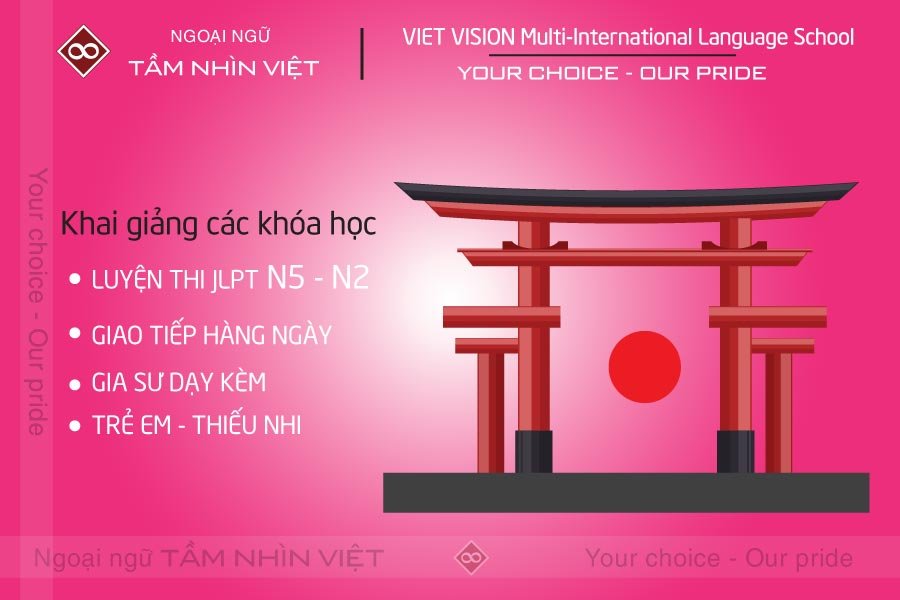Các bạn học ngữ pháp JLPT N3 tiếng Nhật sẽ cần hệ thống đầy đủ và chuyên sâu kiến thức trước kỳ thi để đạt điểm cao.
Hôm nay, chúng ta sẽ đi đến Bài 80 – Ngữ pháp JLPT N3 – ずに (zuni)
Trong bài sẽ có nhiều câu ví dụ cho phần ngữ pháp để bạn có thể hiểu rõ hơn và dễ dàng tiếp thu hơn. Tuy nhiên, một điều lưu ý là bài học được thiết kế dành cho các bạn có nền tảng kiến thức tiếng Anh tốt. Nếu bạn nào không tự tin, có thể sử dụng ứng dụng Google Translate để dịch thành tiếng Việt nhé!
- Có thể bạn quan tâm: Khóa học tiếng Nhật theo yêu cầu (dạy kèm tại nhà hoặc trung tâm)

1. Giải thích ngữ pháp JLPT N3 – ずに (zuni)
Meaning: Without doing
Formation: Verb-ないform (remove ない) + ず(に)
2. Các câu ví dụ thông dụng nhất
左右を見ずに道を渡ると危ないです。
It’s dangerous to cross the street without looking both ways.
Sayuu o mizu ni michi o wataru to abunai desu.
ドアに鍵をかけずに買い物に行ってしまった。
I went shopping without locking the door.
Doa ni kagi o kakezu ni kaimono ni itte shimatta.
相手の話も聞かずに自分の主張だけ通そうとするなんて、それはわがままというものだ。
Trying to stick to one’s own opinion without listening to what others have to say is just plain selfish.
Aite no hanashi mo kikazu ni jibun no shuchou dake toosou to suru nante, sore wa wagamama to iu mono da.
「何が見える?」彼が待ちきれずに聞いた。
“what do you see?” he couldn’t wait and asked.
Nani ga mieru. kare ga machikirezu ni kiita.
連絡せずに会社を休みました。
I took a day off work without contacting my company.
Renraku sezu ni kaisha o yasumimashita.
自分が特別だなんて知らずに、赤ん坊は眠り続けている。
Without knowing that he’s special, the baby falls into deep sleep.
Jibun ga tokubetsu da nante shirazu ni, akanbou wa nemuri tsudzukete iru.
昼ごはんを食べずに9時から5時までずっと働きました。
I worked straight from 9am to 5pm without eating lunch.
Hirugohan o tabezu ni kuji kara goji made zutto hatarakimashita.
フリーターは、自分で就職せずに、きままに働いて、自由を楽しんでいる。
Freelancers don’t need to get a job, they just enjoy their freedom and work whenever they want.
Furiitaa wa, jibun de shuushoku sezu ni, kimama ni hataraite, jiyuu o tanoshinde iru.
ロケ地からロケ地へ絶えず移動していましたし、そのペースもすごく速かったです。
We were constantly moving from location to location, and the pacing of it was really intense.
Rokechi kara rokechi e taezu idou shite imashita shi, sono peesu mo sugoku hayakatta desu.
人々が非常に興味を持ち、ある意味で当惑させられるのは、相手が自分の母語を流暢に話すことができず、自分も相手の母語をほぼ話せない場合に、いったいどうやったら結婚して、本当に強い絆で結ばれたいい関係でいられるのか、という部分のようです。
I think one think that really interests and in someways mystifies people is how you can possibly be married and in a relationship that feels really like a strong, like a good relationship with someone who doesn’t speak your language fluently and you don’t speak their language hardly at all.
Hitobito ga hijou ni kyoumi o mochi, aru imi de touwaku saserareru no wa, aite ga jibun no bogo o ryuuchou ni hanasu koto ga dekizu, jibun mo aite no bogo o hobo hanasenai baai, ittai dou yattara kekkon shite, hontou ni tsuyoi kizuna de musubareta ii kankei de irareru no ka, to iu bubun no you desu.
暴君、エリート層、間接民主制が、今日も昔に劣らず正当性を競い合っています。
Tyrants, elite groups and representative democracies vie as much today for legitimacy as ever.
Bougun, eriitosou, kansetsu minshusei ga, kyou mo mukashi ni otorazu seitousei o kisoiatte imasu.
秀一はおちおち眠れずに、そのあくる日はだいぶおそく目をさました。
Shuichi woke up late the next day after a broken sleep.
Shuuichi wa ochiochi nemurezu ni, sono akuru hi wa daibu osoku me o samashita.
きみが味わってきた苦しみは、誰よりもわたしが一番よく知っていたから、もう闘わずに生きていってほしかった。
No one knew better than i what you’d gone through and i wanted you to stop fighting.
Kimi ga ajiwatte kita kurushimi wa, dare yorimo watashi ga ichiban yoku shitte ita kara, mou tatakawazu ni ikite itte hoshikatta.
彼女は自分の目が信じられずに、三度もくり返し検査をした。
Mistrusting herself, she went through her search three times.
Kanojo wa jibun no me ga shinjirarezu ni, sando mo kurikaeshi kensa o shita.
それで間違えずにレターをタイプしようとしてた。
So i kept trying to type these letters without making a mistake.
Sore de machigaezu ni retaa o taipu shiyou to shiteta.
中村は一言も言わずに、急いで立ち去ろうとした。
Nakamura was hastening away without uttering a word.
Nakamura wa hitokoto mo iwazu ni, isoide tachisarou to shita.
とても長い時間、利用できるサービスは何もなくて、乗客は皆、本当に水も食べ物も口にできずにいました。
For many, many hours, there was no service available and all the train travellers were really going without food and water.
Totemo nagai jikan, riyou dekiru saabisu wa nanimo nakute, joukyaku wa minna, hontou ni mizu mo tabemono mo kuchi ni dekizu ni imashita.
そうすることで自分たちがどんな窮地に立たされるか、彼らは知らずにいたのでしょうか?
Did they not know what they were getting themselves into?
Sou suru koto de jibuntachi ga donna kyuuchi ni tatasareru ka, karera wa shirazu ni ita no deshou ka.
多くの高齢者が仕事を持っておらず、収入もありません。
A lot of the elderly do not work and do not have income.
Ooku no koureisha ga shigoto o motte orazu, shuunyuu mo arimasen.
アキラが胸から血をほとばしらせて、身動きもせず床に倒れている。
Akira lay motionless on the floor, blood gushing from his chest.
Akira ga mune kara chi o hotobashirasete, miugoki mo sezu yuka ni taorete iru.
Kết thúc bài học
Như vậy, chúng ta đã kết thúc Bài 80 – Ngữ pháp JLPT N3 – ずに (zuni)
Hãy tiếp tục theo dõi các bài học ngữ pháp JLTP N3 tiếp theo tại đây: Tổng hợp các bài học ngữ pháp tiếng Nhật JLPT N3
BONUS: Các bạn có thể bổ sung thông tin quan trọng trong kỳ thi JLPT 2020 “TẠI ĐÂY”
Cảm ơn bạn đã quan tâm và theo dõi bài học!
